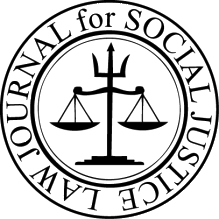By: Lila Mayson
After being highly criticized by scientific and LGBT communities alike for over a decade, state legislatures have finally begun to take a critical eye at conversion therapy. Out of the fifty states in the U.S., a total of twenty have banned conversion therapy for minors in some capacity, with fourteen having statewide bans in place.[1]Almost every statewide ban on minor conversion therapy are in states traditionally considered democratic or liberal. [2]This year, however, less liberal states, such as Arizona, have introduced bills to instigate statewide bans for treating minors.[3]Thus raises the question: how likely is a bill like AZ SB-1160 to be signed into law by more conservative legislatures?
Conversion therapy is a pseudoscientific practice which tries to “fix” the sexualities of gay, lesbian, and bisexual patients. In 2008, an empirical study of all known scientific literature on the subject noted success rates in studies were as low as 4%, while patients suffered from depression and suicidal thoughts as a result of the treatment.[4]Meanwhile, in 2015 a survey of nearly 800 therapists showed at least 72.7% respondents found conversion therapy unethical, and therapists who supported it tended to already have potentially discriminatory beliefs.[5]Minors who undergo conversion therapy treatment are especially vulnerable because, unlike most adults, they may not have a choice if their guardians believe they need treatment for their orientation. The situation parallels closely with child abuse and many survivors suffer from PSTD symptoms.[6]
In Arizona, the proposed statewide ban follows a series of legal baby steps which have primed the pump for sweeping legislation. Last year, Pima County, the second-most populated county in in Arizona, outlined many of the external pressures on state governments in a local ordinance banning the treatment of LGB minors with conversion therapy.[7]The Pima County Board of Supervisors cited, among other things, the lack of valid evidence supporting conversion therapy and the health risks it poses to minors.[8]The strong opposition to conversion therapy from other state and local governments as well as numerous medical and psychiatric associations throughout the nation also contributed to the Board’s decision.[9]Be it through science or peer pressure, protecting LBG children and teenagers is gradually becoming the new normal.
Some of the biggest supporters of conversion therapy stem from religious communities with strong taboos on homosexuality. The Arizonan bill, as it currently stands, tries to alleviate potential conflict with concerned voters by limiting its reach to licensed physicians and behavior health professionals.[10]The Ninth Circuit, the federal circuit which Arizona belongs, has also ruled on against a religious objection to a similar conversion therapy ban in California, citing the neutrality of the law in question.[11]Essentially, conversion bans protect children regardless of their religious affiliation, therefore allowing states to regulate their wellbeing. While it may not completely mitigate any political pressure on Arizona’s legislators, legally it is unlikely AZ SB-1160 would be declared unconstitutional. With the right people in office, perhaps someday soon Arizona will help put an end to an ugly, torturous practice.
[1]Conversion Therapy Laws,Movement Advancement Projecthttp://www.lgbtmap.org/equality-maps/conversion_therapy(last updated October 25, 2018).
[2]Compare id. withLydia Saad, Conservative Leaning States Drop From 44 to 39. Gallup (Feb. 6, 2018) https://news.gallup.com/poll/226730/conservative-leaning-states-drop.aspx(lists California, Connecticut, Delaware, Vermont, Oregon, Rhode Island, Maryland, and Washington as “more liberal than conservative”), and Jeffery M. Jones, State Partisanship Shifts Toward Democratic Party in 2017, Gallup (Feb. 1, 2018)https://news.gallup.com/poll/226556/state-partisanship-shifts-toward-democratic-party-2017.aspx(lists Hawaii, Illinois, New Jersey, and New Mexico as “solid Democrat.” Only New Hampshire and Nevada are considered “average” in both polls).
[3]Maria Polletta, Arizona Bill Would Ban ‘Conversion Therapy’ for LGBT Youths,The Arizona Republic(Jan. 18, 2018), https://www.azcentral.com/story/news/politics/legislature/2018/01/17/arizona-bill-would-ban-conversion-therapy-lgbt-youths/1013708001/.
[4]Robert J. Cramer et al., Weighing the Evidence: Empirical Assessment and Ethnical Implications of Conversion Therapy, 18 Ethics & Behavior93, 99-101 (2008).
[5]Christi R. McGeorge, Thomas Stone Carlson & Russell B. Toomey, An Exploration of Family Therapists’ Beliefs about the Ethics of Conversion Therapy: The Influence of Negative Beliefs and Clinical Competence with Lesbian, Gay, and Bisexual Clients, 41 J. Martial & Fam. Therapy42, 50-51 (2015).
[7]Craig Smith, Gay Conversion Therapy: Pima Co. Bans Controversial Treatment, Kgun9 (Aug. 1, 2017), https://www.kgun9.com/news/local-news/pima-county-passes-conversion-therapy-ban.
[8]Pima County, Ariz. Ordinance No. 2017-22. (2017).
